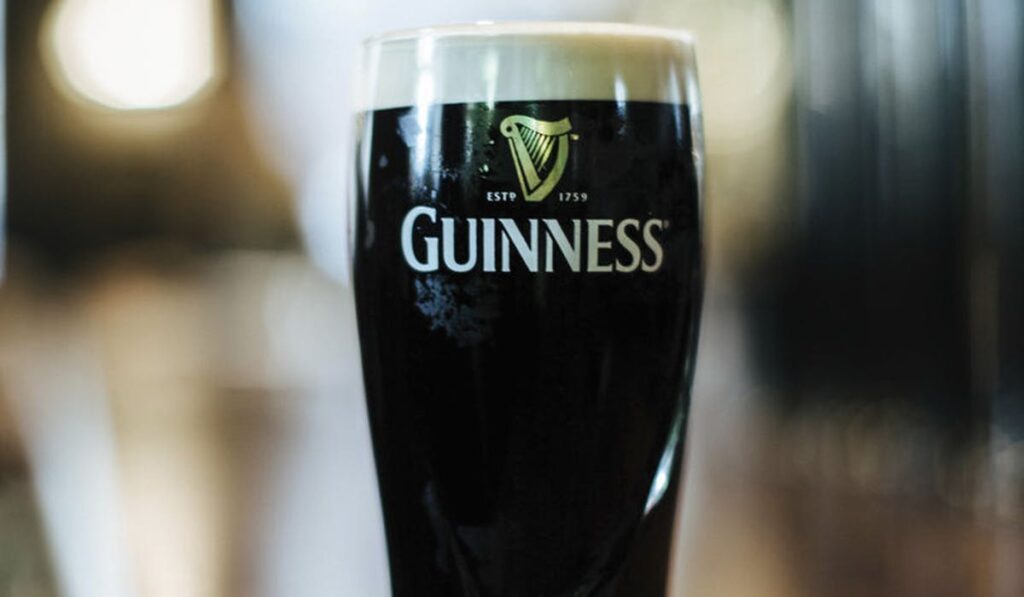 In a year where not all has been plain sailing for parent company Diageo, Guinness is a brand that continues to have strong wind in its sails.
In a year where not all has been plain sailing for parent company Diageo, Guinness is a brand that continues to have strong wind in its sails.
Globally, Guinness’s sales grew 13% in the year ended 30 June 2025 versus the year prior, with impressive volume growth of 14% in the same period. Particularly impressive when it was already lapping strong net sales growth of 15% and volume growth of 5% in the previous financial year.
 In a year where not all has been plain sailing for parent company Diageo, Guinness is a brand that continues to have strong wind in its sails.
In a year where not all has been plain sailing for parent company Diageo, Guinness is a brand that continues to have strong wind in its sails.
Globally, Guinness’s sales grew 13% in the year ended 30 June 2025 versus the year prior, with impressive volume growth of 14% in the same period. Particularly impressive when it was already lapping strong net sales growth of 15% and volume growth of 5% in the previous financial year.
By comparison, Diageo’s total portfolio only drove volume growth of 0.9% in its 2025 fiscal year, as the spirits market struggled against a weaker consumer environment.
Looking to the beer market more broadly, Guinness seems to be very much an outlier in its growth. The world’s biggest brewer, AB InBev, which owns the likes of Corona, Stella Artois and Budweiser, reported its beer volumes fell by 2.2% in the first half of its financial year (the six months ended 30 June 2025). In the same period, Molson Coors, which owns brands including Carling, Coors and Madri, saw its brands’ volumes decline 6.4%.
While these figures are for a shorter period versus Guinness’s recorded volume growth, it suggests the black stout is managing to buck patterns of falling volume in the beer market to drive double-digit growth.
That success story is nowhere more apparent than in Great Britain, where Guinness delivered double-digit growth in fiscal 2025. It is now the number one beer in the on-trade in the UK. Indeed, one in every nine pints poured in the UK is now a Guinness, up from one in 10 last year, according to data from CGA.
Momentum among different audiences
Guinness, which was Marketing Week’s Brand of the Year in 2024, is enjoying global success and can call itself the most popular pint in Britain. As part of its growth, the brand has made impressive headway among audiences that stout, and even beer in general, has traditionally found it hard to reach.
According to a study from April, the brand has seen its penetration among women rise by 86%. Similarly, it is making strides among younger consumers, with penetration among under 34s (but above legal drinking age) rising by 70%.
Data from brand tracking platform Tracksuit also suggests that the beer is making significant headway among younger adults. Among 25- to 34-year-olds, Guinness over-indexes by 10 percentage points more than the beer category average.
Tracksuit’s consumer data also finds Guinness over-indexes 11 percentages points higher versus the beer category average among high earners (those earning above £80,000 per annum), in adults with children under seven (eight percentage points above average) and among Londoners (six percentage points above average).
According to Tracksuit’s data, Guinness leads the UK beer category for usage, sitting at 36%. Its momentum shows no sign of stopping, with this figure having increased six percentage points since October 2024.
The Irish stout brand has made significant progress on usage metrics among consumers aged 18 to 34, increasing this by 11 percentage points since October last year, as well as driving up its preference and consideration among the same age group.
 Stout was once seen as a niche beverage, but it has clearly expanded its appeal well beyond that. The Irish stout was also perhaps once seen as a winter beer, best enjoyed in a cozy pub on a cold day. But in recent years, Diageo has been consciously investing to broaden its appeal.
Stout was once seen as a niche beverage, but it has clearly expanded its appeal well beyond that. The Irish stout was also perhaps once seen as a winter beer, best enjoyed in a cozy pub on a cold day. But in recent years, Diageo has been consciously investing to broaden its appeal.
Guinness is now the UK’s number one summer beer, according to Diageo, with the business crediting sustained investment in its ‘Lovely Day for a Guinness’ campaign as having driven this.
Sustained brand investment has been a key pillar of Guinness’s success, as has innovation. Notably, its non-alcoholic Guinness 0.0 product is both the bestselling and fastest-growing non-alcoholic beer in Great Britain, according to data from Nielsen and CGA.
Its Premier League partnership, which kicked off last year, was also credited with driving success for the brand, closely associating it with sporting occasions in the UK.


